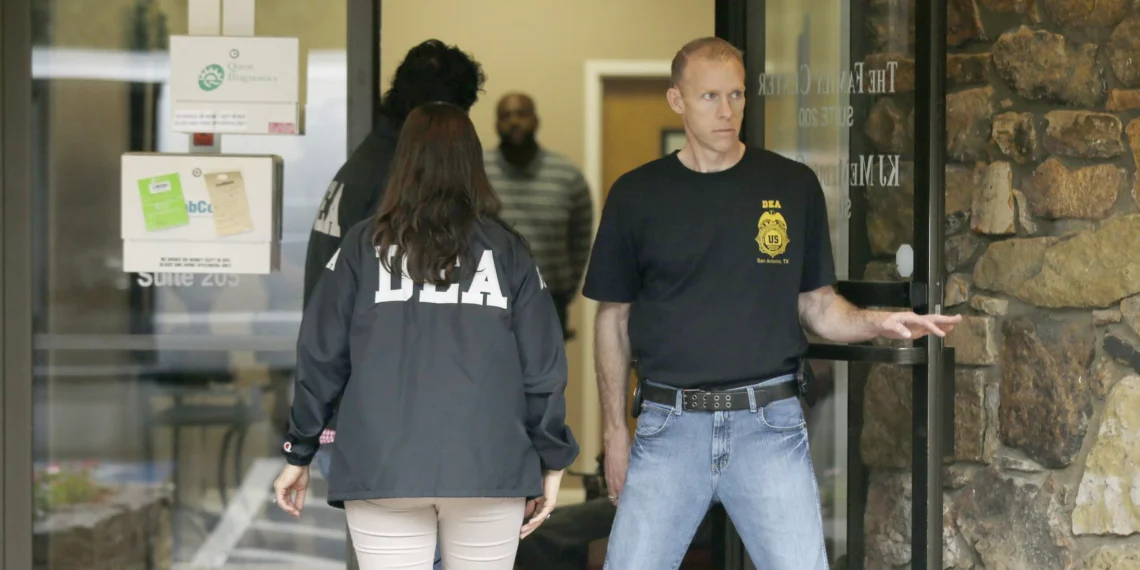The Drug Enforcement Administration (DEA) has come under fire once again for its controversial mass phone data collection program. According to a newly revealed government report, the agency ignored internal warnings about the legality of the program, sparking concerns about privacy and civil liberties.
The report, obtained by The Intercept, sheds light on the secretive nature of the DEA’s phone tracking program. It reveals that DEA insiders raised concerns about the program’s legality, but their voices were silenced and their concerns were kept hidden from the public.
The DEA’s mass phone data collection program, known as the Hemisphere Project, was launched in 2007. It allows the agency to access billions of phone records, including call logs, location data, and even text messages. The program is a collaboration between the DEA and major telecommunications companies, including AT&T, Verizon, and Sprint.
The goal of the program is to track and monitor drug trafficking activities. However, the vast amount of data collected also includes information of innocent civilians who have no connection to any criminal activity. This raises serious concerns about privacy and civil liberties, as the DEA has access to sensitive personal information without any oversight or accountability.
The newly revealed government report highlights the internal alarm raised by DEA insiders about the legality of the program. According to the report, the agency’s own lawyers and analysts expressed concerns about the program’s compliance with the Fourth Amendment, which protects against unreasonable searches and seizures.
Despite these warnings, the DEA continued to expand the program and even used it to assist other law enforcement agencies in their investigations. This raises questions about the agency’s disregard for the law and its responsibility to protect the rights of citizens.
The revelations in the government report have sparked outrage and condemnation from civil rights groups and privacy advocates. They argue that the DEA’s mass phone data collection program is a clear violation of privacy rights and undermines the principles of a free and democratic society.
The American Civil Liberties Union (ACLU) has called for an immediate end to the program, stating that it is “unconstitutional and should be shut down immediately.” The Electronic Frontier Foundation (EFF) has also expressed its concerns, calling for greater transparency and oversight of the DEA’s surveillance activities.
The DEA’s response to the report has been dismissive and defensive. In a statement, the agency claimed that the program is “lawful and effective” and has been instrumental in disrupting drug trafficking operations. However, the agency failed to address the concerns raised by its own employees and the potential violation of constitutional rights.
This is not the first time the DEA has faced criticism for its surveillance practices. In 2013, it was revealed that the agency was collecting data on international phone calls without a warrant. In 2015, a federal court ruled that the DEA’s bulk collection of phone records was illegal.
The latest revelations about the DEA’s phone tracking program once again highlight the need for greater transparency and accountability in government surveillance activities. The agency’s disregard for the concerns of its own employees and the potential violation of constitutional rights is deeply concerning.
It is time for the DEA to come clean and be held accountable for its actions. The agency must provide a full and transparent explanation of its phone tracking program and address the concerns raised by its own employees and civil rights groups. The privacy and civil liberties of citizens must be protected, and the DEA must operate within the bounds of the law.
In conclusion, the DEA’s mass phone data collection program has once again come under scrutiny for its potential violation of privacy rights. The agency’s failure to address internal warnings about the legality of the program is deeply concerning and raises questions about its commitment to upholding the law. It is time for the DEA to be held accountable and for greater oversight of its surveillance activities to protect the rights of citizens.







